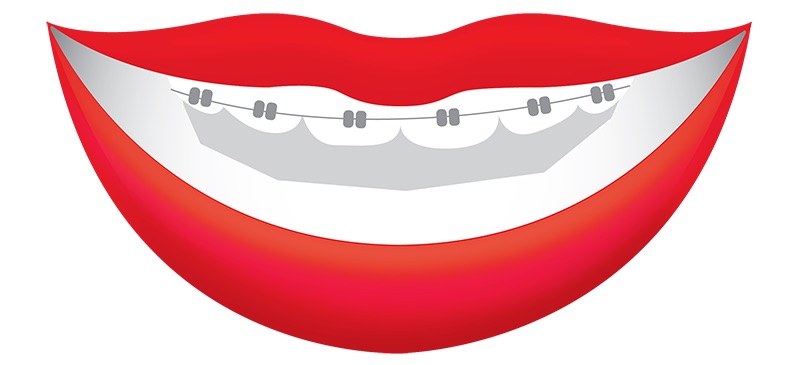There are many reasons why someone might need braces:
- Crowded, crooked or misaligned teeth, gaps between teeth, protruding teeth
- Difference in size between the top and bottom jaw
- Early or late loss of baby teeth, sucking the thumb or fingers, or other oral habits
- Difficulty chewing or biting, grinding or clenching of teeth
- Biting the cheek or biting into the roof of the mouth
- Mouth breathing
- Speech difficulty
- Teeth that meet in an abnormal way or don’t meet at all
- Jaws that shift, make sounds, protrude or are recessed
- Facial imbalance or asymmetry (features out of proportion to the rest of the face)
- Inability to comfortably close lips

No matter the reason, braces can produce a number of benefits for the wearer besides a perfect smile. These benefits include teeth being easier to clean, better digestion due to being able to properly chew food, preventing jaw bone damage or erosion, and correcting speech problems that can stem from tooth or jaw misalignment.
There are many benefits to braces, but here are a few things you should know before your orthodontist puts them on:
- When you first get them, braces can be painful or uncomfortable and cause some soreness. Usually, after about a week, your mouth will start to adjust. Your orthodontist might recommend using ice packs, warm rinses, dental wax or a small amount of pain medication, like ibuprofen, to help you adapt to braces. Consult with your orthodontist to find the best solutions for you. It can also help to stick with soft foods for a few days.
- Having braces doesn’t necessarily make it more difficult to eat, but you do have to be more careful about your habits. To avoid damage to your braces, you may have to cut up foods that are harder to chew. Steer clear of sticky foods, gum, popcorn or other foods that could get caught in or damage your braces.
- Your braces are going to need some extra care. Your orthodontist can help! For instance, it is important to take the time to ensure that you are keeping food particles out from between the braces.
- Your teeth need extra care as well. Good oral hygiene is especially important for people wearing braces. Brushing regularly, as directed by the dentist, flossing daily and scheduling dental visits can help keep teeth healthy.

The length of time you wear braces varies based on your specific oral health needs.
It can be nerve-wracking to think about wearing braces, but a healthier smile will await you at the end of the process!
This information in this post is for general educational purposes only and does not warrant or represent any information as related to health as specifically appropriate for you. It is not intended to be medical advice or replace the relationship that you have with your health care providers. You should always seek medical advice on any diagnosis or treatment from a qualified health care provider. The information is provided “as is” without any representations or warranties, express or implied.


